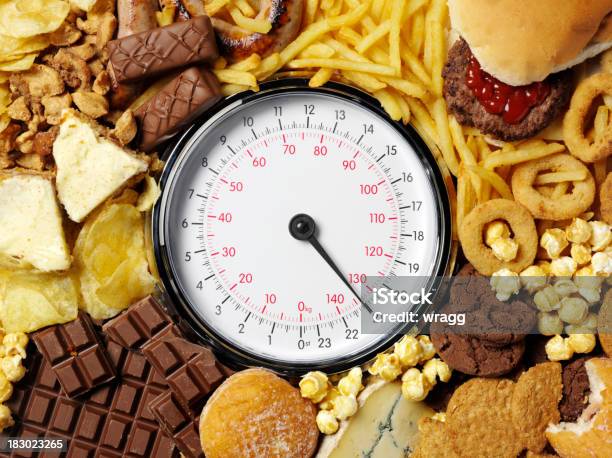
Obesity refers to a medical condition characterized by an excessive accumulation of body fat which occurs when one takes in more calories than they are able to burn.
It increases one’s risk of other diseases.
Research indicates that 1 in every 5 Kenyans is obese.
Obesity is usually determined by calculating the Body Mass Index (BMI), which is a ratio of weight to height. A BMI of 30 or higher is generally considered to indicate obesity, however BMI doesn’t directly measure body fat. Some people such as muscular athletes may have a BMI in the obesity category even though they don’t have excess body weight.
Findings show that in Kenya women fall in the category of obesity more than men.
To calculate BMI; divide weight in kgs by height in meters squared
BMI Calculator;
BMI Weight status
Below 18.5 Underweight
18.5-24.9 Healthy
25.0-29.9 Overweight
30.0 and higher Obesity
CAUSES
Although there are genetic, behavioral, metabolic and hormonal influences on body weight, obesity occurs when you take in more calories than you can burn through typical daily activities and exercise, your body stores these excess calories as fat.
In Kenya, obesity has been attributed to rural to urban migration due to better employment opportunities and improved health care, due to the sedentary lifestyles, decreased amount of exercise and consumption of high caloric foods, obesity develops.
RISK FACTORS OF OBESITY
1. Family inheritance and influences; the genes you inherit from your parents may affect the amount of body fat you store and where you store it.
2. Diet and lifestyle choices; sedentary lifestyles can lead to obesity.
3.Unhealthy diet; a diet that is high in calories, lacking in fruits and vegetables, oversized portions, refined grains, processed foods and fast foods contributes to weight gain. People who also snack a lot especially on high calorie snacks like biscuits, crisps, cakes, sweets etc. are also likely to gain weight.

4. Liquid calories; calories from beverages, soft drinks, alcohol can lead to weight gain.
5. Lack of quality sleep; quality sleep increases the body’s metabolism (a chemical reaction that changes food into energy) thus lack of quality sleep would slow down the body’s metabolism leading to weight gain.
6. Inactivity; if you have an inactive lifestyle, you can easily take in more calories everyday than you burn through exercise and routine daily activities. Elderly people, those with chronic conditions like osteoarthritis may be at a risk of being obese due to inactivity.
7. Certain diseases and medications; conditions like hypothyroidism, Cushing syndrome can lead to weight gain. Some medication like steroids, some antidepressants, and diabetes medicines can also lead to weight gain if you don’t compensate through diet or activity.
Other factors include Pregnancy, Stress, Age (obesity can occur at any age but as you age, hormonal changes and a less active lifestyle increases your risk of obesity)
Obesity can lead to a range of health issues, including but not limited to:
- Type 2 Diabetes: Obesity increases the risk of developing insulin resistance and type 2 diabetes.
- Cardiovascular Disease: It can contribute to high blood pressure, heart disease, and stroke.
- Joint Problems: The excess weight puts additional strain on the joints, leading to conditions like osteoarthritis.
- Respiratory Issues: Obesity can result in reduced lung capacity and worsen conditions like sleep apnea.
- Cancer: Some types of cancer, such as breast, colon, and kidney cancer, are linked to obesity.
- Mental Health: Obesity can impact self-esteem, body image, and lead to depression and anxiety.
Weight loss is often recommended for individuals who are obese in order to improve their health and reduce the risk of associated conditions. Weight loss can be achieved through a combination of dietary changes, increased physical activity, and sometimes medical interventions. Here are some strategies for weight loss:
- Healthy Diet: Focus on consuming a balanced diet with appropriate portions. Incorporate whole foods, fruits, vegetables, lean proteins, and whole grains. Reduce intake of sugary and high-fat foods, processed foods and refined foods. You can reach out to us on our website https://hellodaktari.co.ke for nutritional advice and guidance.
- Physical Activity: Regular exercise is crucial for weight loss. Aim for a mix of cardiovascular exercises (like walking, jogging, swimming) and strength training to build muscle mass.
- Behavioral Changes: Pay attention to eating habits, emotional triggers for overeating, and practice mindful eating. Keep a food journal to track what you eat. Chewing food slowly makes you get fuller quicker, it is also unlikely that would eat a lot when chewing slowly.
- Portion Control: Be mindful of portion sizes to avoid overeating. Use smaller plates and bowls to help control portion sizes visually.
- Stay Hydrated: Drinking water can help control hunger and prevent overeating, it also aids in digestion.
- Sleep: Prioritize getting enough quality sleep, inadequate sleep can disrupt hormones related to hunger and metabolism.
- Professional Guidance: Consult a healthcare professional or registered dietitian before making significant dietary or exercise changes, especially if you have underlying health conditions.
Remember that sustainable weight loss takes time and patience. Rapid or extreme weight loss methods can be harmful to your health. It’s important to focus on making long-term lifestyle changes that you can maintain over time. Additionally, everyone’s body is different, and what works for one person might not work for another. It’s best to consult with a healthcare provider before embarking on any significant weight loss journey. Reach out to us on https://hellodaktari.co.ke where we shall be able to offer online consultation and nutritional advice and meal plan. We also offer home based care services in Nairobi and its environs.
Posted In:
Published On:
August 28, 2023
hellodaktari
